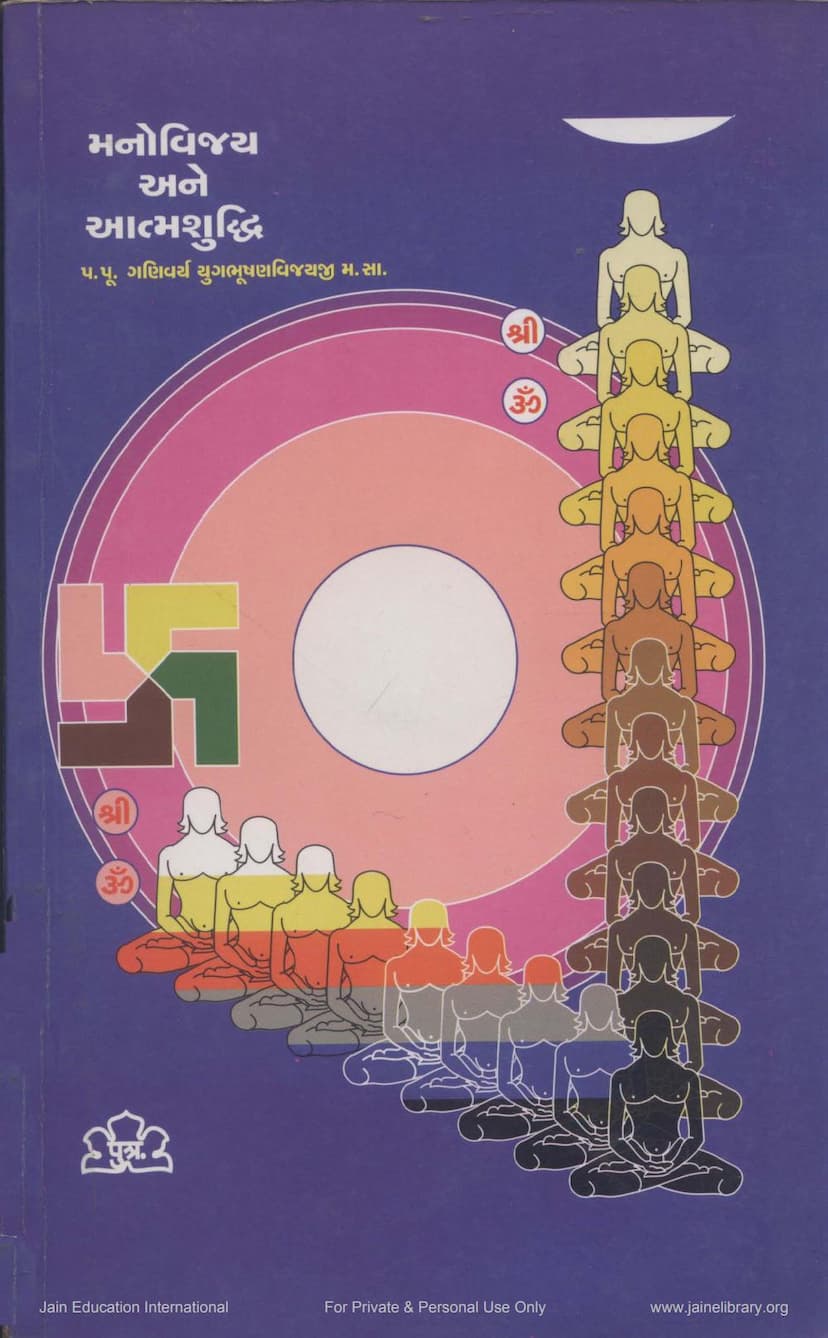Manovijay Ane Atmshuddhi
Added to library: September 2, 2025

Summary
This Jain text, titled "Manovijay ane Atmashuddhi" (Victory over the Mind and Purity of the Soul) by Yugbhushanvijayji Maharaj, is a discourse on achieving self-control and spiritual purification. It emphasizes the profound power of the human mind and the necessity of mastering it to attain spiritual liberation (Moksha).
The text delves into the nature of the mind, differentiating between the physical mind (dravya-man, composed of subtle matter) and the mental states or intentions (bhava-man, the mental activities of the soul). It highlights that the mind, though a tool, is intricately linked to the soul and influences karmic bondage and liberation. The teachings stress that understanding the mind's capabilities and limitations is crucial for spiritual progress.
Key themes explored include:
- The Unparalleled Power of the Human Mind: The text praises the human mind's capacity for immense thought, concentration, and transformation, contrasting it with the limitations of other life forms. It asserts that the human mind's flexibility to traverse extremes of purity and impurity makes the human birth uniquely valuable for spiritual attainment.
- Mind as the Root of Suffering and Liberation: The author argues that the mind is the source of both worldly suffering and the path to liberation. Overcoming desires, attachments, and negative emotions (kashayas) through mental discipline is presented as the core of spiritual practice.
- The Importance of Self-Reflection and Understanding: The text urges readers to introspect and understand their own minds, identifying their strengths and weaknesses. It criticizes the tendency to be more interested in external matters than in the inner self, particularly the mind.
- Two Aspects of the Mind: The teachings distinguish between the "conscious mind" (upayog-man), which is the surface-level thought process, and the "subconscious mind" (labdhi-man), which holds deeper ingrained impressions and tendencies. True spiritual transformation requires addressing the subconscious.
- The Role of Beliefs and Convictions: The author stresses that deeply held beliefs (manyayta) profoundly shape one's experiences and actions. Misconceptions about the nature of happiness, virtue, and vice lead to detrimental karmic consequences. Correcting these faulty beliefs is essential for spiritual progress.
- The Path to Purity: The text outlines a gradual process of spiritual refinement, emphasizing the need to purify thoughts, cultivate virtuous intentions (bhava-man), and ultimately achieve the purity of the soul (atma-shuddhi). It suggests that practices like meditation, contemplation, and unwavering faith in the teachings of the Tirthankaras are instrumental in this process.
- The True Nature of Happiness: The text argues that lasting happiness is not found in external sensory pleasures but in inner peace and self-realization, a state achieved through the purification of the soul.
"Manovijay ane Atmashuddhi" serves as a guide for Jains seeking to understand and control their minds, thereby purifying their souls and progressing on the path to spiritual liberation, aligning with the core tenets of Jain philosophy. The book draws upon Jain scriptures and emphasizes practical application for self-improvement and ultimate spiritual freedom.